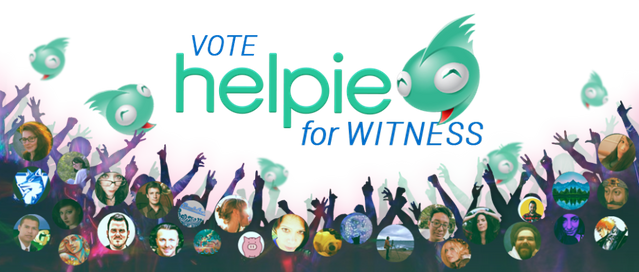The Hard Problems Of Life
Who am I? Where do we come from? Why does the universe exist? What's the meaning of life? Today I will answer all these questions to everybody's satisfaction... Or... maybe not; I'm not God. I'll try to focus on just one of them, the most important one in my opinion, for consciousness is the tool we use to ask and try to answer each and every one of life's big questions.

Image by John Christian Fjellestad - source: Flickr
We know that everything in the universe is made of the same things, the ingredients are the same for everything, yet particles get configured in such a way that suddenly the matter itself, has in it an experience of being that matter. This age-old problem has been dubbed "the hard problem of consciousness" by philosopher David Chalmers, who described it as follows:
"It is undeniable that some organisms are subjects of experience. But the question of how it is that these systems are subjects of experience is perplexing. Why is it that when our cognitive systems engage in visual and auditory information-processing, we have visual or auditory experience: the quality of deep blue, the sensation of middle C? How can we explain why there is something it is like to entertain a mental image, or to experience an emotion? It is widely agreed that experience arises from a physical basis, but we have no good explanation of why and how it so arises. Why should physical processing give rise to a rich inner life at all? It seems objectively unreasonable that it should, and yet it does."
source: Wikipedia
Chalmer introduced us to this term in the 1990s, but it's just a convenient short way to describe a problem that has been puzzling the minds of scientists, philosophers and common folk for ages. Notice that there's an important distinction here between simply receiving and processing information, and the subjective experience that information generates within our consciousness. There's the act of seeing a blue sky, which can ultimately be explained through biochemical and other mechanical processes in the material brain, and then there's the experience of perceiving the blue sky, what if feels like to observe it's majesty. This distinction is also what separates artificial intelligence from the possibility of an artificial consciousness; robots will for sure be able to see their surroundings and act on it, but will they ever really be conscious, will they will it ever feel like something to be a robot?
Hard Problem of Consciousness — David Chalmers
I have my doubts, serious doubts, because the hard problem of consciousness can't be solved with our current understanding of reality; its explanation will ultimately require new physical laws or principles. At least that's what Chalmer et al think, and I agree. The "emergence" explanation just doesn't work, at least not in the classical sense, because emergent phenomena usually result in something that's measurable and observable in reality. Liquid and solid states of water are emergent states; only the complex interaction between water molecules can explain water's liquidity or solidness, a single molecule can't be classified as "solid" or "liquid." But in the case of consciousness there's no real-world equivalent. Consciousness can not be observed, but inferred only, and we can never be sure; those robots will for sure be able to pass the Turing test, if they aren't already, but that will at best be proof of the robot's ability to be very adept at simulating the reactions and behaviors of a conscious human being. Leaving uncanny valley will result in some serious challenges for mankind, but that's a discussion for another time.
The uncanny valley is a common unsettling feeling people experience when androids (humanoid robots) and audio/visual simulations closely resemble humans in many respects but are not quite convincingly realistic.
source: WhatIs
What I would like to propose today, is that there's a very similar problem with life, and I'm astonished that scientists haven't already adopted the term "the hard problem of life"; maybe we can spark something here... You see, it's equally mysterious how particles get configured in such a way that the matter becomes living matter. Since we attribute consciousness to living creatures only (until robots prove the hard problem to not be so hard at all), it seems to me that the hard problem of life comes first, and that this problem should be "easier" to solve...
Well, what do you think? I hold on to the belief that "consciousness" is a fundamental property of reality as we know it, and that it indeed created life as a vehicle to observe and study itself. That we are the universe, trying to understand itself. Just think of every individual perspective on the world, from every human and every "lower" consciousness from all other conscious creatures on the planet. Each of those viewpoints is truly unique; no two consciousnesses exist in the exact same place in the exact same time. All individual experiences and perspectives together must encompass a wealth of information unimaginable by any one of them. Will we ever be able to unravel the mystery of consciousness? And if not, is that a bad thing? Or is it just a thing? And is there any proof that Mark Zuckerberg is indeed a human being? I sometimes get that "uncanny valley" feeling when watching him in interviews...
These are the most confusing questions Congress asked Zuckerberg
Thanks so much for visiting my blog and reading my posts dear reader, I appreciate that a lot :-) If you like my content, please consider leaving a comment, upvote or resteem. I'll be back here tomorrow and sincerely hope you'll join me. Until then, keep steeming!

Recent articles you might be interested in:
| Latest article >>>>>>>>>>> | Know Thyself |
|---|---|
| Beware Hyperreality | Ayahuasca And DMT (And Psylocibin) |
| Invisible Invisible Hand | Humenemy |
| Balance Of Opposites | Feynman's One Dollar Patent |

Thanks for stopping by and reading. If you really liked this content, if you disagree (or if you do agree), please leave a comment. Of course, upvotes, follows, resteems are all greatly appreciated, but nothing brings me and you more growth than sharing our ideas. It's what Steemit is made for!


Just for Full Disclosure, I'm invested in these crypto-currencies:
Bitcoin | Litecoin | EOS | OmiseGo | FunFair | KIN | Pillar | DENT | Polymath | XDCE | 0x | Decred | Ethereum | Carmel | XYO

@helpie is a WITNESS now! So please help @helpie help you by voting for us here!
